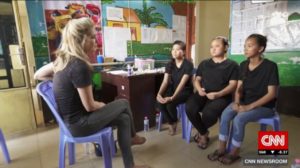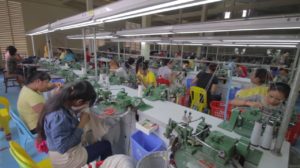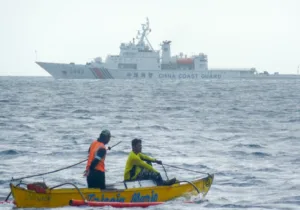In yet another dictatorial move, Cambodia’s Prime Minister Hun Sen ordered Agape International Missions (AIM), an organization working to eliminate child sex trafficking in Cambodia, to shut down. AIM was recently featured in a CNN documentary highlighting the plight of young girls in Cambodia sold by their mothers into sex trafficking.
Hun Sen claimed that AIM and the CNN documentary misrepresented the nationality of the three girls featured in the documentary as Cambodian. The girls were ethnically Vietnamese residents who grew up in Cambodia. Hun Sen also accused AIM and CNN of misleading the public about the extent of trafficking problems in Cambodia and of besmirching the country’s public profile by portraying ethnically Vietnamese women living in Cambodia as Cambodian.

Regardless of the ethnicity of the women, the fact remains that child sex trafficking is a problem in Cambodia. The U.S. Department of State’s 2017 Trafficking in Persons (TIP) report currently ranks Cambodia as Tier 2. A Tier 2 designation means that Cambodia fails to meet minimum standards for eliminating human trafficking, but is making significant efforts to comply. The report identifies Cambodia as a source, transit, and destination country for human trafficking.
The scale and scope of trafficking in Cambodia is hotly contested. Don Brewster, CEO and co-founder of Anti-Trafficking Initiatives at AIM, claims in the CNN documentary that in the past almost 100 percent of girls in Svay Pak (the region of Cambodia where AIM operates) would become victims of sex trafficking at some point in their lives. Today, Brewster says, conditions have improved significantly. Girls now have a below 50 percent chance of being trafficked.
International Justice Mission (IJM), another anti-trafficking group operating in Cambodia, documented a substantial decrease between 2000 and 2015 in the availability of minors for commercial sexual exploitation in Phnom Penh, Siem Riep, and Sihanoukville. IJM estimates that the rate of child sex trafficking may be as low as 8.16 percent in these cities.

Even if the prevalence of trafficking in Cambodia is substantially lower than AIM and CNN claim, discrepancies in data do not warrant the removal of an NGO from Cambodia. After all, the availability of accurate, agreed upon data on human trafficking is hard to come by. The international community cannot even agree on the number of trafficking victims worldwide.
Rather, Hun Sen’s decision to shut down AIM is reflective of a growing trend toward authoritarianism in Cambodia and should be viewed as a broader attempt at silencing civil society. Earlier this month, Hun Sen sanctioned a handful of election monitoring organizations that oversaw flawed commune elections. Criticism of election-monitoring civil society groups is particularly concerning ahead of July 2018 elections.
The U.S. and the international community watched Cambodia prior to the unfree and unfair elections in 2013 and should do the same ahead of 2018 elections. The expulsion of AIM is a symptom of growing pains in Cambodia and may be symptomatic of faltering democracy there. If Cambodia continues to backslide, the U.S. should seriously consider tightening bilateral and multilateral assistance. The U.S. government should also encourage Cambodia to continue strengthening legal and judicial remedies to address trafficking in persons.
—
Olivia Enos, research associate in the Asian Studies Center at The Heritage Foundation, specializes in human rights and transnational criminal issues. These include human trafficking and human smuggling, drug trafficking, religious freedom, and other social and humanitarian challenges facing Asia.
Photo Credit: Prime Minister of Cambodia Hun Sen during the World Economic Forum on East Asia in Ho Chi Minch City, Vietnam on June 6, 2010. By World Economic Forum, via Flickr.







 Live in the DC area? Sign-up for Providence's in-person events list!
Live in the DC area? Sign-up for Providence's in-person events list!